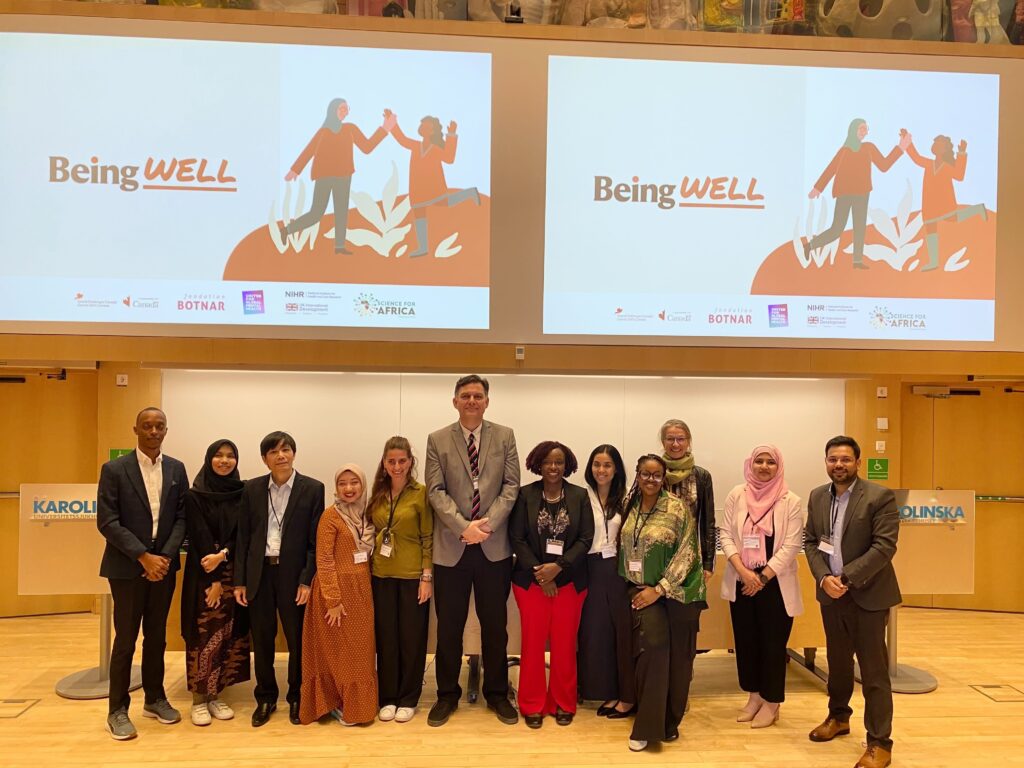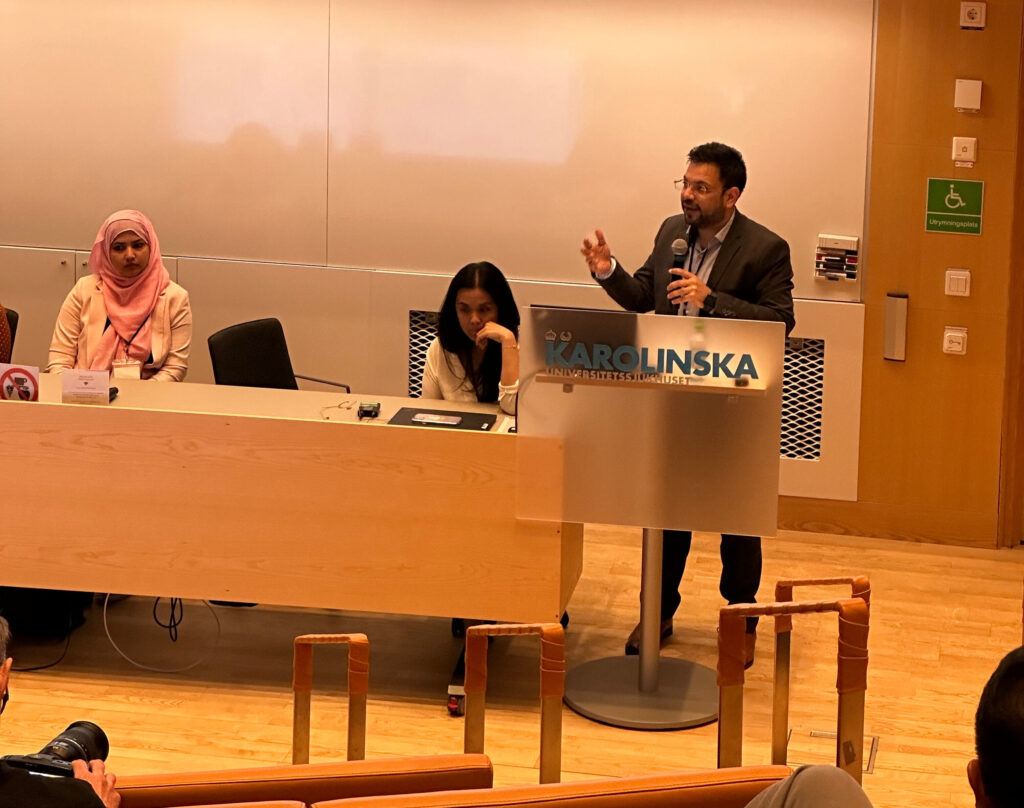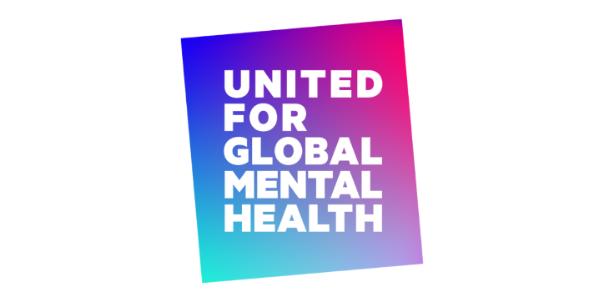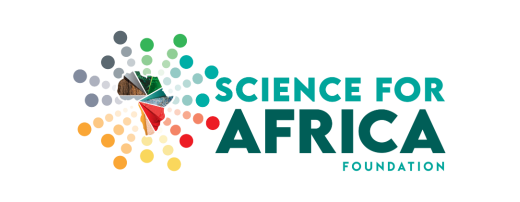
In this guest blog, Puspita Alwi, Youth Advisor and Co-Founder & Executive Director à l'adresse Sehat Jiwa, Indonesia, shares five key insights from the Bold Ideas for Brighter Futures Conference, hosted by l'UNICEF et le Karolinska Institutet, which took place in Stockholm, Sweden from May 15-16, 2024.
Attending the Bold Ideas for Brighter Futures Conference was a genuinely enriching experience. I had the incredible opportunity to connect with passionate individuals worldwide, all dedicated to the cause of youth mental health. While some may have seen this as just another conference addressing a trending issue, it felt like my first offline support group for youth mental health advocates.
I still vividly remember the moment I received the invitation to present our program, Sehat Jiwa for School: A School Mental Health Program to Tackle Loneliness in Youth, which aims to equip students, teachers, and the school system with a set of knowledge and skills to maintain and improve mental health conditions. I was thrilled to represent Sehat Jiwa — as a young advocate from Indonesia, my biggest fear is that our impact might go unnoticed simply because of our age. However, this conference reignited my hope that youth can be at the forefront of mental health initiatives.

5 Key Insights from the Bold Ideas for Brighter Futures Conference
Here are five key insights from the Brighter Futures conference that I’d like to share:
- Youth as Experts: It’s vital to recognize youth as experts and value their lived experiences. We need to provide space, opportunities, and support for youth to develop and implement their solutions. Meaningful engagement means asking how we can collaborate, allowing youth to lead, and fully supporting them.
- Action Over Talk: There’s a lot of discussion about youth mental health, and while each initiative has its strengths, we need to move beyond talking. Meaningful investment and concrete actions are crucial to truly prioritizing youth mental health.
- Sustainable Financing: Youth mental health initiatives require sustainable funding. Collaboration with funding organizations, research institutions, program implementers, the private sector, the government, and youth is essential.
- Multistakeholder Collaboration: Addressing youth mental health isn’t just a health sector issue. It requires bold, informed, and active participation from all stakeholders. Engaging everyone is critical to creating lasting change.
- Long-Term Effort: Youth mental health is a long-term endeavour. It might feel like our efforts could be bigger or more, but every action matters. As youth, we’re the change-makers, and though it takes time, we’re on the right track.
Advancing Global Understanding of Young People’s Mental Health and Wellbeing: Insights from the ‘Being’ Initiative
On the last day of the conference, I also got the chance to hear from the Being team and its partners, who joined in-person and virtually to present a symposium titled “Advancing Global Understanding of Young People’s Mental Health and Wellbeing: Insights from the ‘Being’ Initiative in Pakistan, Egypt, Indonesia, and Vietnam.” The presentation included Sahil Chopra, Portfolio Manager at Grands Défis Canada, Aline Cossy-Gantner, Chief Development Officer from Fondation Botnar, Dr. Joanna Lai, Health Specialist, Adolescent/School/Mental Health, Health Section, from l'UNICEF, Dr. Zill-e-Huma, from the Global Institute of Human Development, Shifa Tameer-e-Millat University, Dr. Amirah Ellyza Wahdi and Prof. Nguyen Duc Vinh from Université Gadjah Mada, Dr. Eman Gaber, from the General Secretariat of Mental Health and Addiction Treatment, and Prof. Dr. Ali Madeeh Hashmi, Chairman of the Department of Psychiatry, King Edward Medical University (KEMU).

Being’s session, which highlighted insights from a landscape analysis and consultations nationales with young people and mental health experts to identify key drivers of their mental health and guided the initiative’s funding priorities, reminded me that our efforts are on track; now that we know what youth mental health effort we can prioritize, we must take further steps while considering all the considerations highlighted above.

Overall, the Brighter Futures conference reminded me that I’m not alone in this journey. Many others face similar struggles and challenges, but together we’re figuring out solutions. We must keep going, appreciate all our impacts (even those that feel small), and celebrate every milestone while staying connected to our “why”—the reason we started this journey in the first place.
Now, is the time to make youth mental health a priority. What will your step be to make this possible? Let’s move forward together, ensuring that youth mental health remains at the forefront of our efforts.






